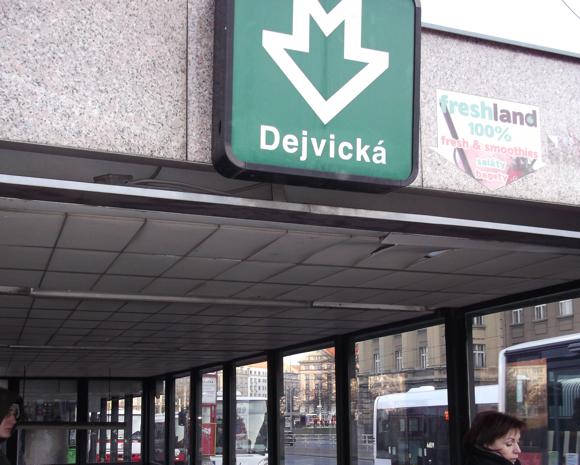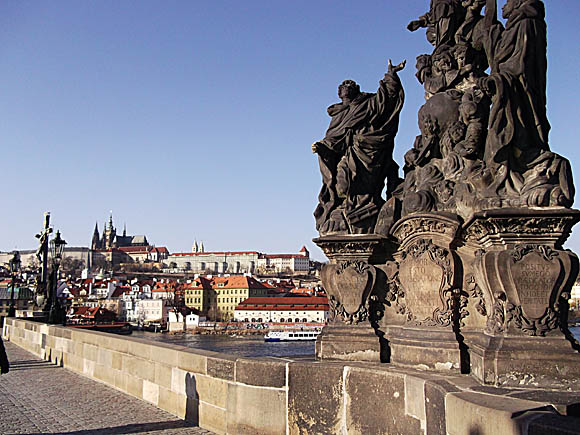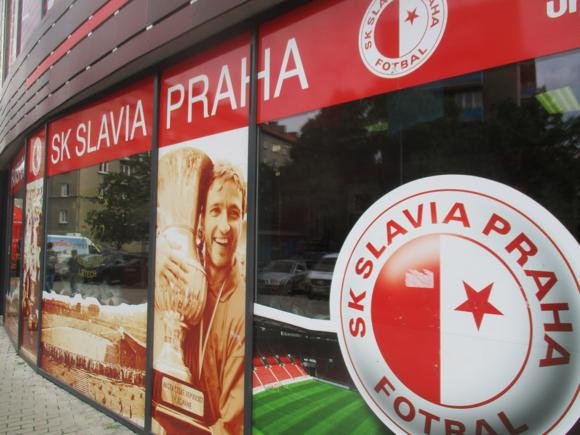A fan’s guide – the club from early doors to today
As cult as it gets, named after a battle won by the Red Army in the Carpathian Mountains in 1944, Dukla are the quintessential army side of the Communist era. Iron-Curtain mystique helped them become fearsome competitors in Europe, while state support brought the best players in the country for Dukla to dominate at home.
Celebrated by Birkenhead indie band Half Man Half Biscuit in the song All I Want for Christmas is a Dukla Prague Away Kit, the Dejvice club became a top-flight outfit again in 2011 after post-89 collapse and a long-running merger saga.
In 1948, half the dominant squad of Slavia Prague was sent to the newly formed army side, ATK, later Dukla. The club could draft any potential star, such as later European Footballer of the Year Josef Masopust from Technomat Teplice in 1952.

ATK won their first title in 1953, then, as Dukla, in 1956. They went on to take six more up to 1966. In Europe, Dukla beat the Busby Babes of Manchester United 1-0 at home in 1957, and the double-winning Spurs side by the same scoreline in 1962. Dukla made it through to the semi-finals of the European Cup in 1967, losing to eventual winners Celtic.
Quite incongruously, every summer Dukla would also compete in lucrative tournaments in New York, the players training in Central Park, taking on the likes of Everton, before returning to the institutional landscape of Dejvice, Prague 6.
Another wave of success came in the mid 1970s, when goalkeeper Ivo Viktor and right-winger Zdeněk Nehoda, both Czech heroes of Euro 76, helped them to more silverware.

Dukla fell from grace almost immediately after 1989. Heading for bankruptcy, the club was playing in front of three-figure crowds when entrepreneur Bohumír Ďuričko bought second-division FC Příbram for their second-division status.
In 1996 Dukla were subsumed into the club 40 miles south-west of Prague, playing at the riverside Na Litavce ground in Příbram where they had played a number of European games in the 1960s.
The Dukla-Příbram saga took many a twist and turn. Dukla regained top-flight status in 1997 and made the Czech cup final but the new ownership ran aground of the army officialdom that still managed the old Dukla ground in Dejvice. Dukla became FC Dukla, Dukla Příbram, then FK Marila Příbram. The current 1.FK Příbram enjoyed a top-flight sojourn in the Czech league, and have been knocking on the door to get back in.

Meanwhile, league football was still being played in Dejvice, and at the Juliska stadium – by Dukla Dejvice. Stepping out in Dukla’s famed yellow and red, this local team formed in 1959 were carrying on the Dukla tradition. While playing in the Prague league, the club improved their status overnight when their management took over the ailing Jakubčovice in 2007, then in the Czech second division.
After four years, the new FK Dukla Prague won the Czech second division, bringing top-flight football back to the fearsome, Stalin-era Juliska for 2011-12. Dukla put in solid league campaigns, thrice finishing in the top six, but slowly slipped down the table until relegation in 2019.
A long way third in their first season in the second-tier FNL, Dukla have not been near the top two promotion places since. The return in 2022 of former Dukla defender Petr Rada as coach brought him back into the fold to join his son Filip, a veteran keeper at the club since 2007.










Stadium Guide
The field of dreams – and the stands around it






Set atop a very steep (prepare yourself!) flight of steps up from the main road of Podbabská, the Stadion Juliska echoes the period it was built in. Its pitch surrounded by a running track, this Soviet-era relic enjoys a commanding view over an area of Prague that was once dominated by the military.
Equally steep is the main West Stand, ringed by modest, uncovered terracing and the paraphernalia of track and field. Spots of Dukla yellow and red offset the monotone grey. Even in Dukla’s glory days, such was Juliska’s modesty, the club would play home legs at the Strahov, Slavia or even Příbram, where they later moved.
Today, the west entrance (vstup západ) leads to the main stand (hlavní tribuna), sectors A-F. Visiting supporters access the north entrance (vstup sever) to take their places in sector G. Press should come in via the east entrance (vstup východ).
After a rebuild in 2012-13, plastic seats replaced the wooden ones and now number just over 8,150 as opposed to the previous 4,590. Note also the statue of Josef Masopust at the top of the pod Juliskou staircase, footprints of other Dukla heroes such as Zdeněk Nehoda, and the handprints of legendary keeper Ivo Viktor.
getting there
Going to the stadium – tips and timings



From Dejvická, at the end of green metro line A, take buses 107, 116, 147 or 160 (two stops), or tram 8 (four stops), to Nádraží Podbaba. The stadium is way, way up Pod Juliskou via a steep staircase.
Alternatively, and if you’re coming from Sparta, take tram 8 or 18 from nearby Hradčanská to Nádraží Podbaba. The 8 also stops at Sparta itself.
getting in
Buying tickets – when, where, how and how much


Tickets are sold in advance at the club shop (Mon 10am-3pm, Tue 1pm-6pm, Fri 10am-3pm) at Podbabská 5, on the main road at the bottom of the staircase to stadium, at the ground on the day of the match or online (Czech-only) at a modest discount.
Admission is an across-the-board Kč150/€6.30, reduced Kč120/€5, and Kč200/€8.40 for cup games. Under-15s get in free. The main stand is divided into covered (tribuna krytá) and, nearer the pitch, open (tribuna nekrytá).
what to buy
Shirts, kits, merchandise and gifts




Yes, you can buy that Dukla Prague away kit at the club shop (Mon 10am-3pm, Tue 1pm-6pm, Fri 10am-3pm) at Podbabská 5, on the main road before the staircase to stadium. Home is yellow with maroon collars, away maroon with yellow sleeves.
The club is also wise to its cult status. Dukla oven gloves or aprons? Not a problem. Pin badges come in several varieties, one showing a Dukla player in motion and the foundation year of 1948.
Where to Drink
Pre-match beers for fans and casual visitors







On the roundabout square, Vitězné náměsti, by Dejvická metro station, you’ll find the neat Kulat’ák Pilsner bar/restaurant, with its historic beer posters.
By the Podbaba tram stop near the ground, the Restaurace Pod Juliskou is another showcase for Pilsner Urquell, poured in smart surroundings and accompanying superior dishes that can also be enjoyed in the back beer garden in summer.
At the stadium, a little bar by the training pitch behind the furthest goal from the staircase serves PIlsner Urquell and grilled sausages on match days.








